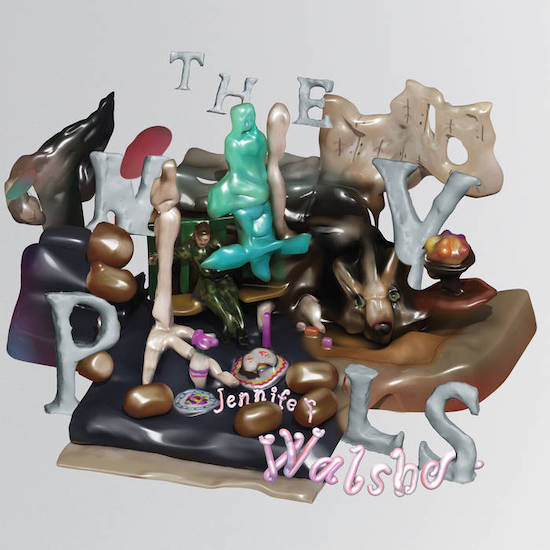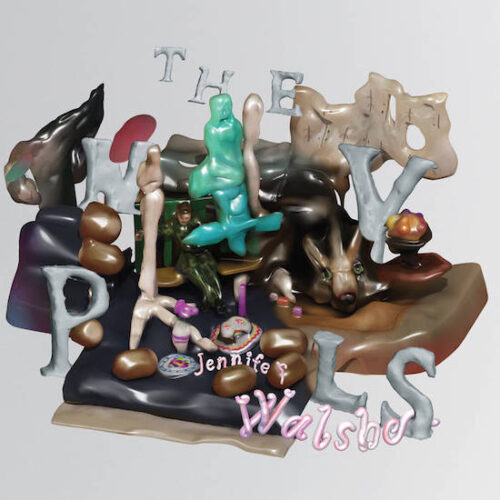It’s a popular fallacy to characterise modern composition as humourless. Sure, any field has its share of ego-tripping wieners, and the audiences at live performances can be stuffy, but John Cage, Alvin Lucier, Tony Conrad? Funny motherfuckers all. I’ve always thought it sad that attempted parodies of "serious" music miss this fact, and seem to think they’re taking the piss out of the music by depicting its performances as absurd. Of course they’re absurd; they’re supposed to be.
The two long compositions that make up Jennifer Walshe’s new album ALL THE MANY PEOPLS are unapologetically funny. Both text-heavy pieces call to mind the experimental vocalist Joan La Barbara performing the writings of Samuel Beckett, had Beckett been around long enough to get sucked into The Singularity. Like La Barbara, Walshe uses extended techniques to take her voice into weird and goofy places – quacking, quivering, doing classic New York cabbie accents – but Walshe distinguishes herself from her forebears with a rapid cut-and-paste bricolage that could only have come into being in our perpetually connected time.
Walshe pulls from a confounding variety of sources for inspiration, everything from Johnny Cash lyrics to 4Chan to " the collective unconscious as evidenced by Googull Autocomplete". At times, it sounds as if the listener has left too many browser windows open, with audio running in each. It would be maddening, were it not arranged in such an engaging, entertaining fashion.
Unsurprisingly, Walshe counts fellow slicer/dicer Drew Daniel of Matmos as a friend and occasional collaborator. In his liner notes for this record, Daniel notes that "far from succumbing to a blur of non-differentiation which levels down distinctions, in the face of this overplus the online self becomes simultaneously more fluid (open to anything) and more selective (you’ll know it when it you find it): customising, editing down, prioritising. There’s another word for this process: composition." Cage couldn’t have said it better himself.
Walshe’s work here is manic, cobbled, and unquestionably a product of the internet, but much like the best meme aggregators, its seemingly haphazard presentation is actually serious, well-considered, and a creative act in itself. With that in mind, ALL THE MANY PEOPLS might be compared to someone whispering meme texts in your ear for nearly an hour: it’s surreal and occasionally uncomfortable, but it’s also a barrel of laughs.



